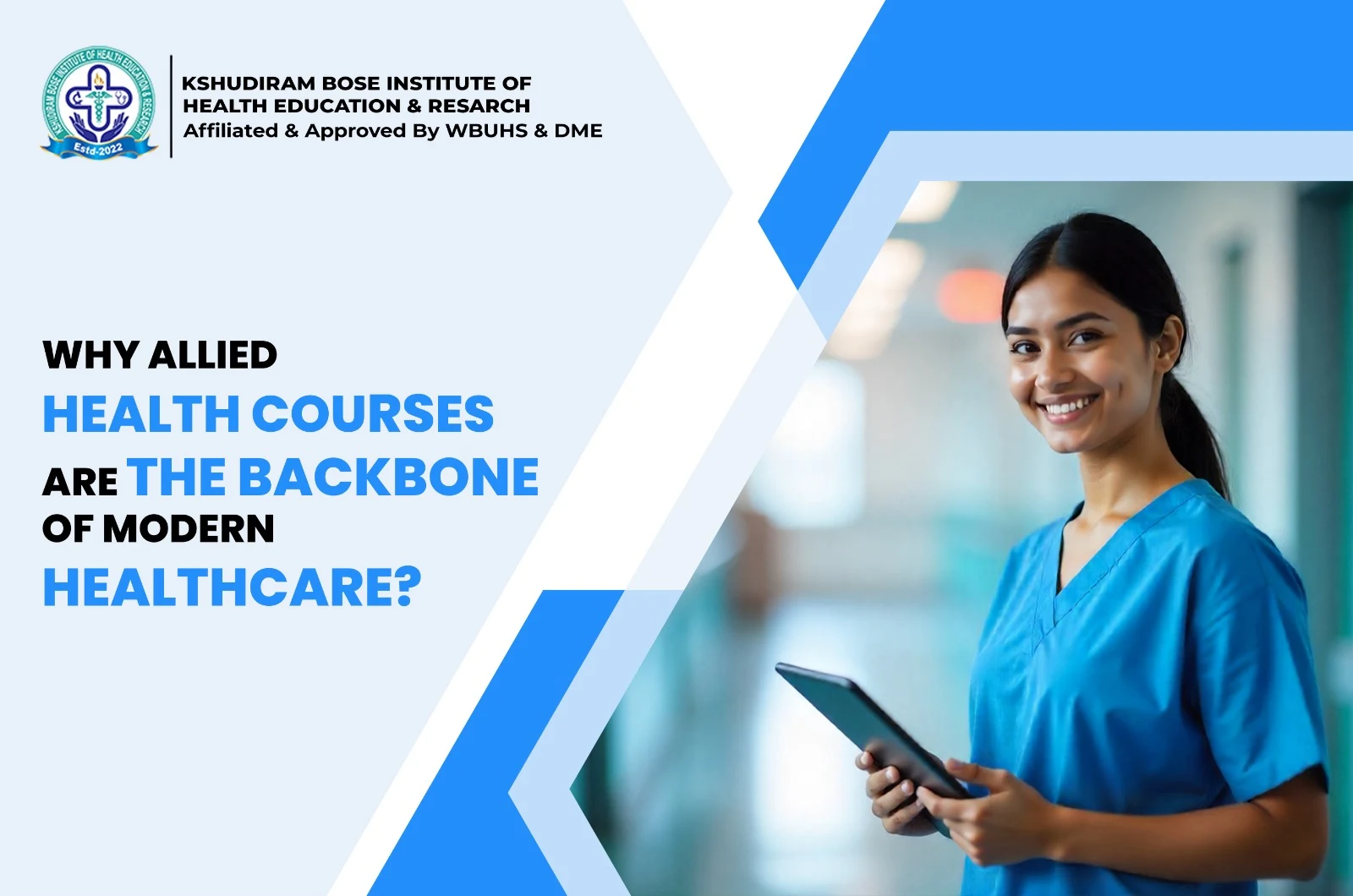
In the world of healthcare, doctors and nurses are often celebrated as the key figures in saving lives. While their role is undeniably important, there’s a large team of highly skilled individuals working alongside them — professionals who may not always be in the public eye, but whose work is essential for the healthcare system to function. These are Allied Health professionals.
From running diagnostic tests and operating life-saving equipment to ensuring hospitals run smoothly, these professionals form the invisible framework that supports the medical system. Without them, even the most advanced hospitals would face serious challenges in delivering quality care.
The last decade has brought massive changes to healthcare. With technology transforming diagnosis, treatment, and hospital management, the importance of Allied Health workers has only grown. Their expertise bridges the gap between medical theory and real-world patient care, making them a cornerstone of modern healthcare.
Allied Health Sciences is a broad field that covers a variety of professions supporting medical and nursing care. These roles require specialized training, often combining advanced technical knowledge with practical clinical skills.
The work of Allied Health professionals is diverse. For instance, Medical Laboratory Technologists are experts in analyzing blood samples, biopsies, and other specimens to detect diseases. Critical Care Technologists are trained to handle ICU equipment like ventilators and cardiac monitors, playing a direct role in saving lives. Operation Theatre Technologists ensure surgeries happen under perfectly sterile and safe conditions, while Hospital Administrators manage the complex logistics of running a healthcare facility efficiently.
Together, these professionals ensure that healthcare is not just about diagnosis and treatment but also about precision, organization, and constant readiness.
Modern medicine is a team effort. Allied Health professionals take on responsibilities that directly affect patient outcomes. Their contributions can be grouped into key areas:
Even the most skilled doctor relies on these behind-the-scenes experts to ensure treatments are safe, timely, and effective. Without them, healthcare would face dangerous delays and inefficiencies.
Healthcare is one of the fastest-growing industries in the world. In India, it’s projected to reach $372 billion by 2025, and a major part of this expansion is the demand for skilled Allied Health workers.
Several factors drive this trend. An aging population needs more hospital care, rehabilitation, and chronic disease management. Lifestyle diseases like diabetes and heart problems are on the rise, requiring ongoing monitoring and specialized care. Additionally, medical technology continues to advance, creating a need for professionals who can operate sophisticated diagnostic and treatment equipment.
The COVID-19 pandemic further highlighted the need for trained staff. From lab technicians processing thousands of samples to ICU teams managing critical patients, Allied Health professionals proved to be the backbone of emergency healthcare response.
The versatility of Allied Health courses is one of their greatest strengths. Graduates can work across clinical, administrative, and technical roles, giving them a wide career scope.
Promising career options include:
These roles are in demand not only in hospitals but also in diagnostic laboratories, research centers, NGOs, and international healthcare organizations. Many graduates also pursue further specialization or management roles, making this a field with strong growth potential.
Looking ahead, Allied Health will only become more essential. Telemedicine, AI-assisted diagnostics, and personalized treatment plans are changing healthcare delivery, and skilled professionals will be required to manage these technologies.
Global health challenges — from pandemics to natural disasters — will continue to need quick and efficient responses from a trained healthcare workforce. In these situations, Allied Health professionals act as the bridge between technology, medical expertise, and patient care. Their adaptability and technical skill make them indispensable in any future healthcare model.
At Kshudiram Bose Institute of Health Education & Research (KBIHER), education is not limited to theory. Students train in modern labs, work with real medical equipment, and participate in internships that prepare them for real-world healthcare challenges.
The faculty includes experienced industry professionals who guide students with practical insights. The curriculum is regularly updated to match industry needs, ensuring graduates are job-ready. Beyond academics, KBIHER focuses on communication skills, problem-solving, and teamwork — essential qualities in any healthcare role.
With strong placement assistance and connections to top hospitals and healthcare centers, KBIHER provides students with a launchpad for successful careers in Allied Health Sciences.
The skills taught in Allied Health courses are not bound by geography. Many graduates secure positions in leading hospitals abroad.
Why demand is global:
Allied Health professionals are the unsung heroes of modern medicine. They work tirelessly behind the scenes to ensure that every test is accurate, every surgery is safe, and every hospital is well-managed. Without them, healthcare as we know it would not function.
For students with a passion for healthcare but a desire for specialized, hands-on roles, Allied Health courses offer a rewarding path. Choosing a reputed institution like KBIHER ensures that you graduate not only with a degree but with the confidence, skills, and readiness to serve in one of the most critical sectors of our society.
Q1. What are Allied Health courses?
Allied Health courses train students for specialized healthcare roles outside of direct medical practice. These include fields like medical lab technology, radiology, physiotherapy, and operation theatre technology.
Q2. Why are Allied Health courses important?
They ensure that hospitals and clinics run efficiently by providing accurate diagnostics, rehabilitation services, and technical support, making them essential to modern healthcare systems.
Q3. What is the career scope of Allied Health in India?
India’s growing healthcare infrastructure and medical tourism industry have created high demand for Allied Health professionals in hospitals, diagnostic labs, rehabilitation centers, and international healthcare facilities.
If you’re ready to start your journey in Allied Health Sciences and want to know more about our courses, eligibility, or career opportunities, KBIHER is here to guide you. Our team is committed to helping students build a successful future in healthcare.
Email: info@kbiher.in
Website: www.kbiher.in